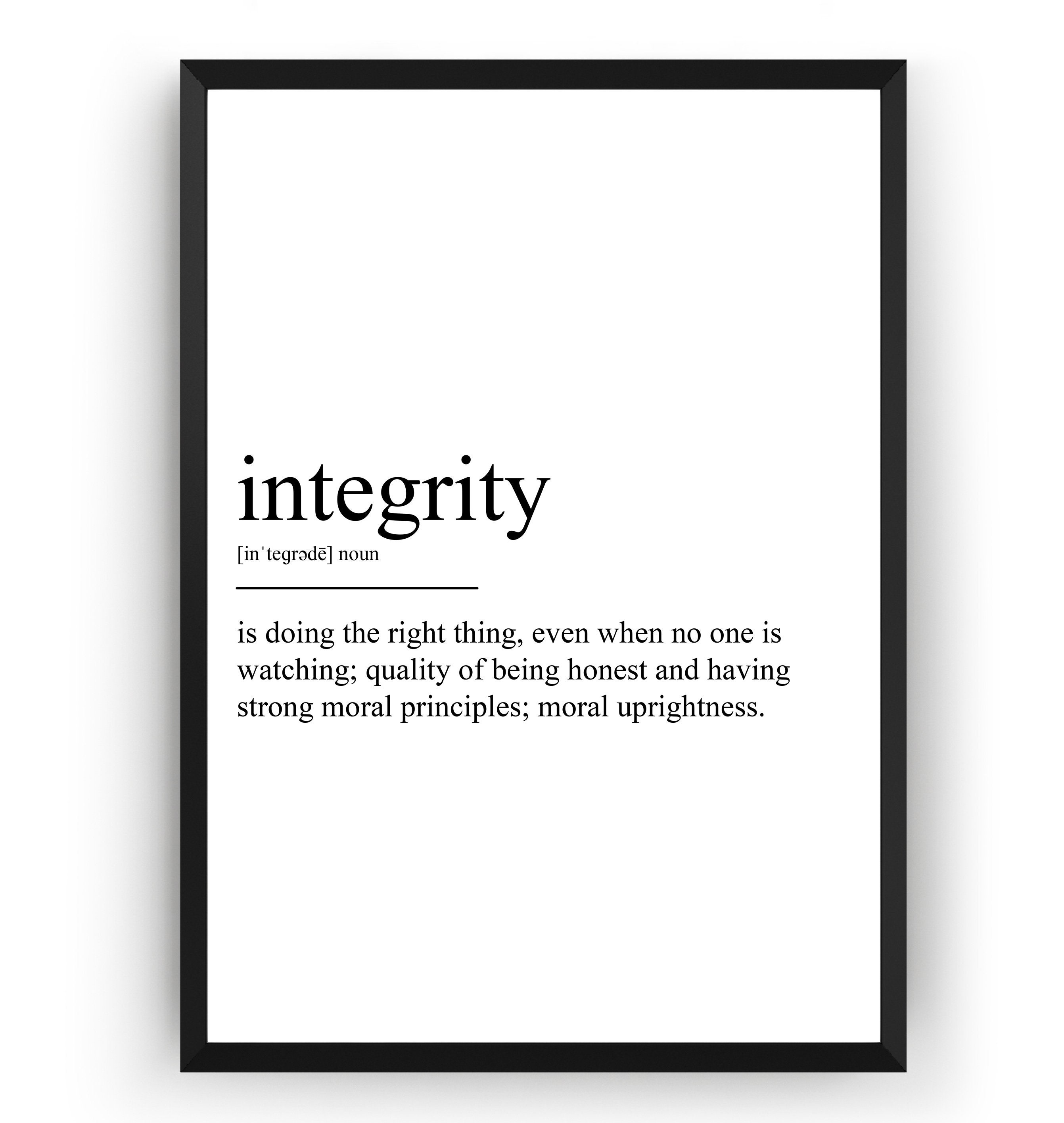
Define integrity professional#
Learning to act with integrity is simple, and practicing it can have a profound impact not only on your professional life, but on your personal life as well.ĭisplaying integrity really comes down to sticking true to what you think makes a good person and a good worker. In business, that means respecting coworkers, employers, and all stakeholders, as well as the organization and its aims.

It goes back to the golden rule: treat others how you would want to be treated if you were in their place. Each person feels supported and respected by the other. If each person on an organization’s team acts with integrity, it is a much more pleasant and productive work space. This is why it’s such a highly sought-after trait. It’s obvious that kind, empathetic and considerate people are the ones you want to work with. It also means that you are able to stick up for yourself and your own perspective in a kind and professional way. To have integrity means that you are honest, considerate, and empathetic to the lives and perspectives of others. It means that you have a clear sense of your moral values, and you stick to them at all costs, regardless of who’s watching. It does not depend on the situation, the people you’re interacting with, or even your own personal (temporary) feelings. Integrity is defined as a firm, unwavering commitment to ethical behavior.

You can practice showing integrity at work so that it becomes more natural and easier for you to display integrity under pressure.

People with integrity are enjoyable to work with and highly sought after by employers. Integrity commits to ethical behavior, no matter the situation or the emotions surrounding the situation. Keep reading to find out what integrity is, how it shows up in the workplace, and how and why you should display integrity at work. Integrity is one of the most highly sought-out characteristics in potential employees, but it can be difficult to decipher what it means to display integrity in the workplace.


 0 kommentar(er)
0 kommentar(er)
